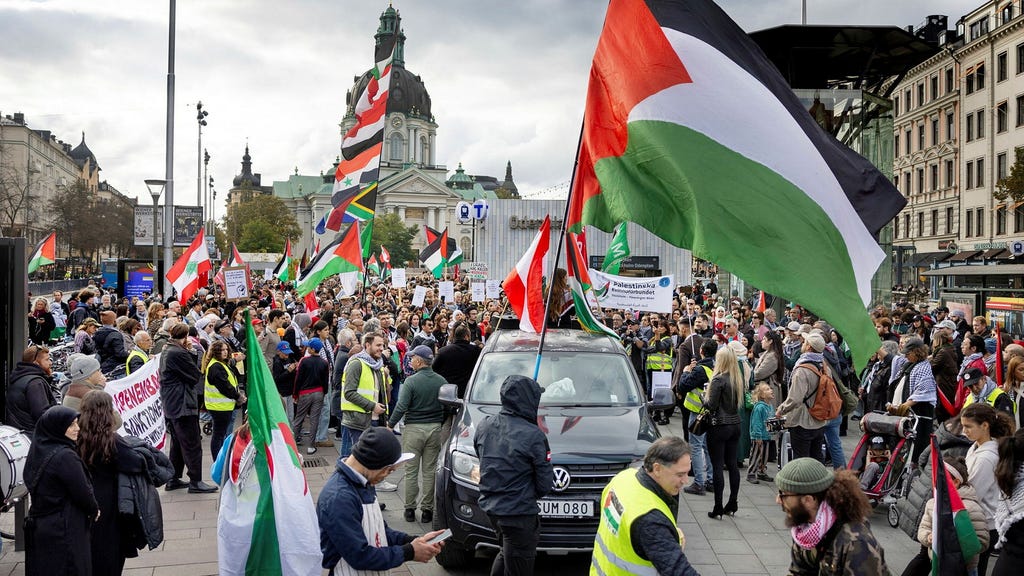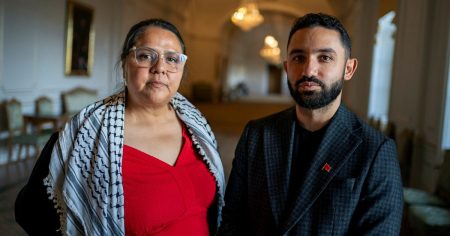The recent conflict between Israel and Hamas in Gaza has ignited a fierce global debate concerning the protection of civilian lives amidst warfare. A poll conducted by DN/Ipsos reveals that a significant majority of Swedish voters believe Israel is not doing enough to safeguard civilian populations in Gaza. This sentiment underscores a growing international concern regarding the proportionality of force employed in the conflict and the potential violation of international humanitarian law. While the poll highlights a general consensus among Swedish voters, a deeper analysis reveals a nuanced perspective, with opinions diverging based on political affiliations. This underscores the complexity of the issue and the varying lenses through which the conflict is viewed, influenced by political ideologies and pre-existing biases.
The DN/Ipsos poll illuminates a stark divide in public opinion based on party allegiance. Voters aligned with left-leaning parties, such as the Social Democrats, the Left Party, and the Green Party, overwhelmingly express the view that Israel’s actions are insufficient to protect Gazan civilians. This perception likely stems from a broader critique of Israeli military policies and a greater emphasis on the humanitarian crisis unfolding in Gaza. These voters are more likely to focus on the disproportionate impact of the conflict on Palestinian civilians, including the high number of casualties and the destruction of infrastructure. They may also be influenced by narratives that emphasize the power imbalance between Israel and Palestine, portraying Israel as an occupying force with a responsibility to protect the civilian population under its control.
Conversely, supporters of right-leaning parties, including the Moderate Party, the Christian Democrats, and the Sweden Democrats, demonstrate a more divided perspective. While a portion of these voters also express concern over Israel’s handling of the conflict, a significant segment believes Israel is taking adequate measures to protect civilians or even faces undue criticism. This perspective might be rooted in a stronger emphasis on Israel’s right to self-defense against Hamas rocket attacks and a greater focus on the threat posed by Hamas to Israeli civilians. These voters are more likely to highlight Hamas’s use of human shields and its strategy of launching rockets from densely populated areas, placing the onus of civilian casualties on Hamas. They may also be influenced by narratives that emphasize Israel’s vulnerability to terrorism and its need to protect its borders.
The divergent viewpoints based on political affiliation reflect deeper ideological divides regarding the Israeli-Palestinian conflict. Left-leaning voters often sympathize with the Palestinian cause, viewing the conflict through the lens of occupation and human rights violations. They tend to criticize Israeli settlement policies and advocate for a two-state solution based on pre-1967 borders. Right-leaning voters, on the other hand, tend to be more supportive of Israel’s security concerns and its right to defend itself against terrorism. They are more likely to view Hamas as the primary aggressor and to place greater emphasis on the need for Palestinian authorities to renounce violence and recognize Israel’s right to exist.
The findings of the DN/Ipsos poll contribute to a broader international conversation regarding the ethical and legal implications of warfare in densely populated areas. The debate focuses on the principles of distinction and proportionality enshrined in international humanitarian law, which require belligerents to distinguish between combatants and civilians and to avoid excessive civilian harm. Critics argue that Israel’s military operations in Gaza have violated these principles, resulting in a disproportionate number of civilian casualties and widespread destruction of civilian infrastructure. Supporters of Israel contend that the country has taken reasonable precautions to minimize civilian harm and that Hamas’s tactics are primarily responsible for the civilian suffering in Gaza.
The complexities surrounding the protection of civilians in the Gaza conflict are multifaceted and deeply rooted in the historical and political dynamics of the region. The ongoing debate regarding Israel’s actions reflects a broader struggle to balance the imperative of protecting civilian lives with the realities of asymmetric warfare. The findings of the DN/Ipsos poll, showcasing the varied perspectives of Swedish voters, highlight the challenging task of achieving a just and lasting resolution to the Israeli-Palestinian conflict. The poll underscores the need for continued dialogue and engagement to address the underlying causes of the conflict and to promote a future where the lives and dignity of all civilians are protected. The strong opinions reflected in the poll demonstrate the importance of informed public discourse and the need for critical evaluation of information from diverse sources, fostering a more nuanced understanding of the conflict and its implications.














